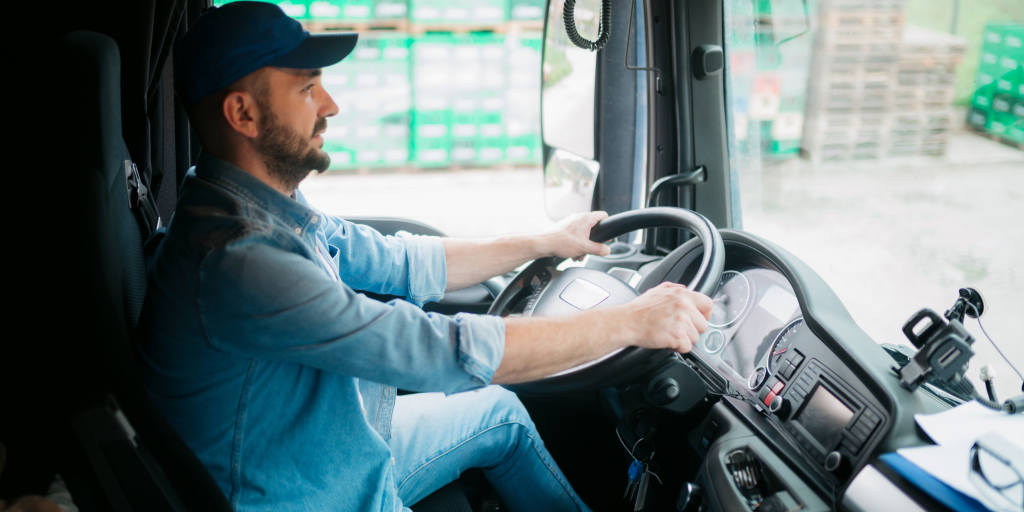

Environmental Impact Of The Trucking Industry: Challenges And Solutions For A Sustainable Future
The trucking industry plays a vital role in global commerce, ensuring the efficient movement of goods across vast distances.
However, it also contributes significantly to environmental challenges, including air pollution, carbon emissions, and noise pollution.
This article explores the environmental impact of the trucking industry and highlights the challenges it faces.
Moreover, it presents innovative solutions and best practices that can help mitigate its effects, promoting a more sustainable future.
Carbon Emissions
Trucking is a major contributor to greenhouse gas emissions, primarily through the burning of fossil fuels.
Heavy-duty trucks emit carbon dioxide (CO2), nitrous oxide (N2O), and particulate matter (PM), contributing to climate change and air pollution.
To address this issue, the industry is increasingly adopting cleaner technologies, such as low-emission engines, hybrid vehicles, and electric trucks.
Shifting toward alternative fuels like natural gas, hydrogen, and biofuels also offers promising opportunities for reducing carbon emissions in the trucking sector.
Air Pollution
Trucks are a significant source of air pollutants, including nitrogen oxides (NOx), sulfur oxides (SOx), and particulate matter.
These emissions have adverse effects on air quality and human health, leading to respiratory issues and other respiratory-related illnesses.
To combat air pollution, truck manufacturers are developing advanced emission control systems, such as selective catalytic reduction (SCR) and diesel particulate filters (DPF).
Additionally, stricter emission standards and regulations are being enforced globally to encourage the adoption of cleaner technologies and the use of ultra-low sulfur diesel (ULSD) fuel.
Noise Pollution

The continuous movement of trucks contributes to noise pollution, particularly in urban areas.
Excessive noise can have detrimental effects on both human health and wildlife.
The industry is working on reducing noise pollution by implementing noise reduction technologies in truck designs and developing quieter road surfaces.
Additionally, stricter regulations on noise emissions and the implementation of nighttime delivery restrictions in urban areas can help mitigate the impacts of truck-related noise pollution.
Efficient Route Planning And Logistics
One key solution to reducing the environmental impact of the trucking industry is optimizing route planning and logistics.
By utilizing advanced technology and data analytics, trucking companies can minimize empty miles, improve fuel efficiency, and reduce emissions.
Implementing intelligent transportation systems that provide real-time traffic information, route optimization, and load consolidation can significantly contribute to reducing the overall environmental footprint of the industry.
Fleet Optimization And Maintenance
Proper fleet optimization and maintenance are crucial in reducing the environmental impact of trucking operations. Regular maintenance, tire inflation, and engine tuning can improve fuel efficiency and reduce emissions.
Employing telematics and predictive maintenance systems can help monitor vehicle performance, detect potential issues, and optimize maintenance schedules.
Furthermore, the adoption of aerodynamic designs, lightweight materials, and advanced vehicle technologies can enhance fuel efficiency and decrease emissions.
Collaboration And Intermodal Solutions

Encouraging collaboration and promoting intermodal solutions can further mitigate the environmental impact of the trucking industry.
Intermodal transportation involves combining multiple modes of transportation, such as rail and sea, to optimize efficiency and reduce reliance on trucks for long-haul journeys.
Enhancing infrastructure, developing efficient transloading facilities, and implementing multimodal transportation networks can help shift freight from trucks to more sustainable modes, minimizing emissions and congestion.
Government Regulations And Incentives
Government regulations and incentives play a crucial role in driving environmental improvements within the trucking industry.
Stricter emission standards, such as the Euro VI norms in Europe and the EPA’s greenhouse gas regulations in the United States, have pushed manufacturers to develop cleaner and more fuel-efficient trucks.
Governments can also provide incentives, such as tax credits and grants, to encourage the adoption of greener technologies and practices within the industry.
Sustainable Fuel Options
Exploring sustainable fuel options is a key aspect of reducing the environmental impact of the trucking industry.
Biofuels, such as biodiesel and renewable diesel, offer cleaner alternatives to traditional fossil fuels.
These fuels are derived from organic materials and significantly reduce greenhouse gas emissions.
Additionally, the development of infrastructure to support the use of electric trucks, including the establishment of charging stations along major routes, can accelerate the transition to zero-emission vehicles in the trucking industry.
Driver Training And Education

Investing in driver training and education programs can contribute to environmentally conscious practices within the trucking industry.
Educating drivers on fuel-efficient driving techniques, such as proper acceleration, braking, and maintaining steady speeds, can significantly reduce fuel consumption and emissions.
Additionally, training programs can raise awareness about the importance of proper vehicle maintenance, tire pressure checks, and idle reduction practices, further minimizing the industry’s environmental footprint.
Collaboration With Shippers And Customers
Collaboration between trucking companies, shippers, and customers is essential for fostering sustainable practices.
By working together, stakeholders can optimize supply chain processes, reduce unnecessary miles traveled, and implement strategies like backhauling (transporting goods on return trips) to minimize empty truck journeys.
Moreover, promoting sustainable packaging practices and encouraging the use of recyclable materials can help reduce waste and environmental impact throughout the transportation and delivery process.
Encouraging Green Warehousing And Distribution Centers
The environmental impact of the trucking industry extends beyond the trucks themselves.
Green warehousing and distribution centers can significantly contribute to reducing the overall carbon footprint.
Implementing energy-efficient technologies, utilizing renewable energy sources, and adopting sustainable construction and design principles can help minimize energy consumption and emissions in storage and distribution operations.
Additionally, optimizing warehouse layouts and employing efficient inventory management practices can reduce truck idling time and unnecessary movements, further enhancing sustainability efforts.
Public-Private Partnerships

Collaboration between the public and private sectors is crucial for addressing the environmental impact of the trucking industry.
Governments can provide incentives, tax breaks, and grants to encourage trucking companies to invest in eco-friendly technologies and practices.
Public-private partnerships can also facilitate the development of infrastructure, such as electric charging stations, clean fueling stations, and rest areas with idle reduction facilities.
By working together, stakeholders can overcome barriers and accelerate the adoption of sustainable solutions within the industry.
Environmental Certification And Reporting
Implementing environmental certification programs and reporting standards can drive transparency and accountability within the trucking industry.
Certification programs, such as the SmartWay program in the United States, evaluate and recognize companies that meet specific environmental performance criteria.
These programs encourage continuous improvement, promote best practices, and provide valuable benchmarks for companies aiming to reduce their environmental impact.
Furthermore, publicly reporting emissions data and sustainability metrics can enhance industry-wide awareness and encourage competition in sustainability practices.
Continuous Research And Development
Investment in research and development is crucial for driving innovation and finding new ways to reduce the environmental impact of the trucking industry.
This includes exploring emerging technologies such as hydrogen fuel cells, advanced aerodynamics, and platooning systems.
Continued research can lead to the development of more efficient, cleaner, and sustainable solutions for trucks and transportation systems as a whole.
Conclusion
The trucking industry faces significant environmental challenges, but through sustainable fuel options, driver training, collaboration, and technological advancements, it can make substantial progress towards a greener future.
Encouraging the use of alternative fuels, optimizing logistics, and implementing environmentally conscious practices throughout the supply chain are key steps in reducing carbon emissions, air pollution, and noise pollution.
The environmental impact of the trucking industry is a pressing concern, but the sector is actively taking steps to address these challenges.
Through the adoption of cleaner technologies, route optimization, fleet maintenance, and collaboration with other transportation modes, the industry is striving to reduce carbon emissions, air pollution, and noise pollution.
Government regulations and incentives also play a crucial role in shaping a more sustainable future for trucking.
By embracing innovative solutions and best practices, the trucking industry can make significant strides towards a greener and more environmentally responsible future.
Add a comment Cancel reply
Comments (0)
Categories
- Blog Posts (43)
- Buying Tips (5)
- Selling Tips (4)
- Truck Reviews (17)
Recent Posts
About us

Meet Percy, the blog editor who knows his semicolons from his emojis, and his coffee order by heart. He may spend most of his days glued to a computer screen, but don’t let that fool you – he is a superhero at midnight (as long as there’s enough caffeine involved). When he is not editing blog posts, you can usually find him daydreaming about his next snack break or planning his next witty tweet.
Related posts


How Warehouses Drive Logistics Efficiency

Truck Driver Scheduling Solutions









